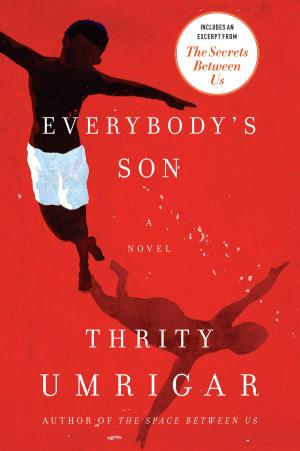| Author: | Tasha Moore | ISBN: | 9781476141879 |
| Publisher: | Tasha Moore | Publication: | July 18, 2012 |
| Imprint: | Smashwords Edition | Language: | English |
| Author: | Tasha Moore |
| ISBN: | 9781476141879 |
| Publisher: | Tasha Moore |
| Publication: | July 18, 2012 |
| Imprint: | Smashwords Edition |
| Language: | English |
Bourbon Street to St. Charles Avenue, the party is everlasting. The city is known for its laid back and easy way of life. Because of its culture, it has claimed nicknames, such as “The Big Easy,” “The City that Never Sleeps,” and “The Crescent City”. It’s a party town that tourists love. People around the world would agree that New Orleans is a great place to visit, but only a few know what it is like to live there. Most people living in a major city in America can identify with one another. City life is city life, and big cities share some of the same characteristics. There’s always the people’s culture, the greatness of the city, the wealth, the poverty, and the crime. Oftentimes, the worst is reported to the public. Bad news is bad news; the media doesn’t seem to care about how those negative reports create harmful images in the minds of people in and outside of a community. It only takes one second to think about whether what is presented to you is constructive or destructive and then you decide what you will do with the information.
Crescent La’fleur, a native New Orleanian, reflects about the city where she was born and raised. She takes a stroll down the memory lane of her life. Growing up black in America is hard enough, but it can be even harder when you’re a black female and poor. She’s heard the slogan “Black don’t crack” many times, but she viewed this slogan from a different perspective. Her trials in life caused her to feel as if black did crack and was often tested. Everyone has their perspective, but when almost all opinions about you are negative it can place an unsettling stigma in your mind. Crescent was determined not to let the negative stereotypes of her culture (poverty, fatherless-families, drug abuse and broken-relationships) take root in her mind. As she struggles to find a place in society, her experiences take her down roads in life that she didn’t plan to take. An unimaginable and horrific incident occurs in her life that almost claims her sanity. Through it all, she discovers her own strength, faith and resilience. Crescent takes you on a journey of life’s highs and lows, and how they shaped her into the person she is today.
Bourbon Street to St. Charles Avenue, the party is everlasting. The city is known for its laid back and easy way of life. Because of its culture, it has claimed nicknames, such as “The Big Easy,” “The City that Never Sleeps,” and “The Crescent City”. It’s a party town that tourists love. People around the world would agree that New Orleans is a great place to visit, but only a few know what it is like to live there. Most people living in a major city in America can identify with one another. City life is city life, and big cities share some of the same characteristics. There’s always the people’s culture, the greatness of the city, the wealth, the poverty, and the crime. Oftentimes, the worst is reported to the public. Bad news is bad news; the media doesn’t seem to care about how those negative reports create harmful images in the minds of people in and outside of a community. It only takes one second to think about whether what is presented to you is constructive or destructive and then you decide what you will do with the information.
Crescent La’fleur, a native New Orleanian, reflects about the city where she was born and raised. She takes a stroll down the memory lane of her life. Growing up black in America is hard enough, but it can be even harder when you’re a black female and poor. She’s heard the slogan “Black don’t crack” many times, but she viewed this slogan from a different perspective. Her trials in life caused her to feel as if black did crack and was often tested. Everyone has their perspective, but when almost all opinions about you are negative it can place an unsettling stigma in your mind. Crescent was determined not to let the negative stereotypes of her culture (poverty, fatherless-families, drug abuse and broken-relationships) take root in her mind. As she struggles to find a place in society, her experiences take her down roads in life that she didn’t plan to take. An unimaginable and horrific incident occurs in her life that almost claims her sanity. Through it all, she discovers her own strength, faith and resilience. Crescent takes you on a journey of life’s highs and lows, and how they shaped her into the person she is today.















